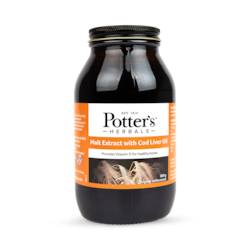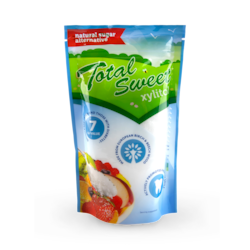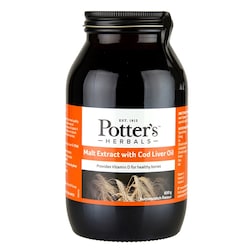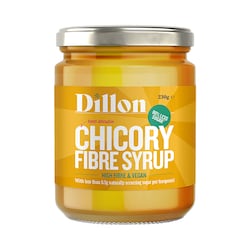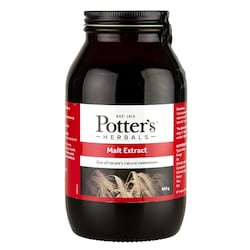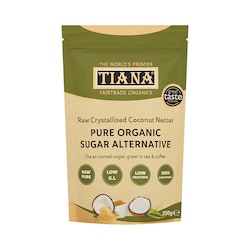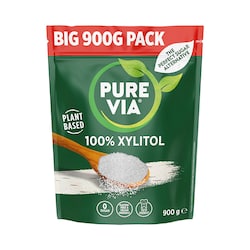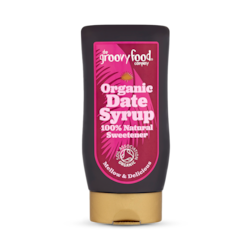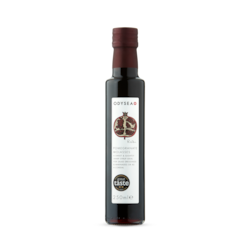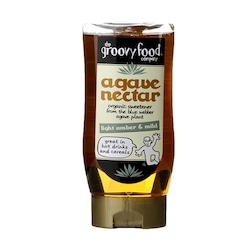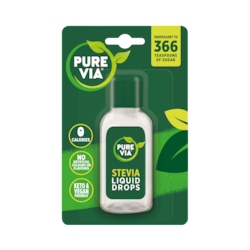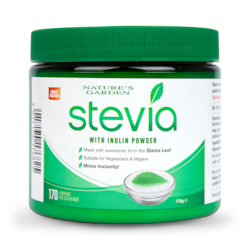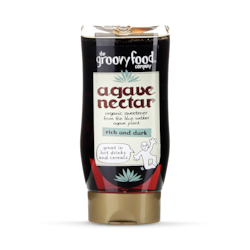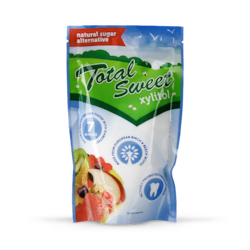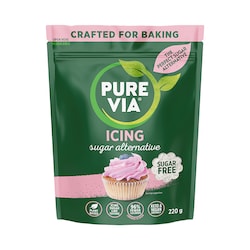15% off £20
Why agave syrup is a great vegan substitute for honey
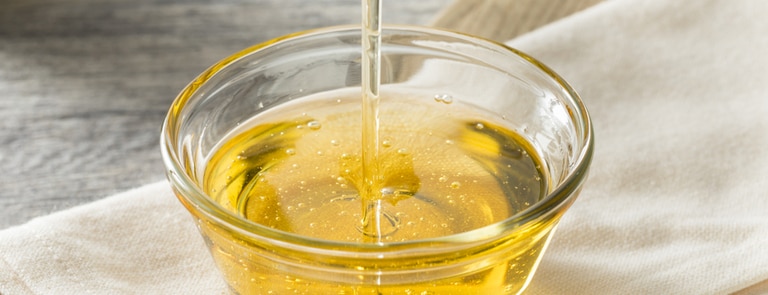
Have you heard that agave syrup’s a great vegan alternative to honey? Or maybe you’ve seen agave nectar pop up on your screen and have been meaning to check it out?
Over the next few paragraphs, we’re going to talk you through all things agave syrup-related and answer some of the most-pondered questions:
- Is agave syrup better for you than sugar?
- Is agave syrup healthy?
- What can I use instead of agave syrup?
- Is agave syrup the same as golden syrup?
But first, let’s start with answering the question we’ve started this article off with – why is agave syrup a great vegan substitute for honey?
The answer…
Agave syrup, which is also called agave nectar, is pretty much identical to honey in terms of texture, sweetness and taste. And, the good news for vegans is, it’s not derived from animals.1
Now there’s a bit of an ongoing debate when it comes to categorising honey as vegan or non-vegan. Some people argue it is an animal product because it’s produced by bees, while others say it is vegan because it’s made by bees for bees.
Whereas honey is produced by bees, agave syrups come from a plant, the agave plant in Mexico. Unlike honey, agave easily dissolves in both hot and cold liquids. If you’re baking or cooking with honey, you need the same amount of agave syrup as you would honey (so, one cup of agave is the equivalent to one cup of honey).
Summary
Agave syrup or nectar comes from the agave plant and happens to taste very much like honey. The texture and sweetness are also very similar too.
Is agave syrup better for you than sugar?
Compared to sugar, agave syrup happens to have a low Glycemic Index (GI); lower than maple syrup, honey, barley malt and sugar.2
Foods with a higher GI tend to trigger a greater surge in blood sugar and insulin—the hormone that helps the sugar get into cells just after eating. These spikes can be particularly problematic for people with diabetes.
High-GI foods also tend to make you hungry again sooner because they're digested quickly. According to a study in the American Journal of Clinical Nutrition, agave's GI value is about five times lower than table sugar.
The bottom line – agave nectar is less likely to make your blood sugar levels crash the way sugar does.3
Summary
Agave has a lower GI rating than sugar, which means it’s not as likely to trigger surges in blood sugar and insulin. The body absorbs agave more slowly into the bloodstream than sugar.
Handpicked content: Are sugar substitutes healthy?
Is agave syrup healthy?
Now, here’s the thing, we’ve already established that agave nectar has a lower GI than traditional sugar, which is a major plus point for the reasons explained immediately above.
But…agave happens to be slightly higher in something called fructose than sugar. This is why it tastes so sweet. Whereas glucose is converted into energy by our cells, fructose is primarily metabolised by the liver.4
Eating too much fructose can potentially put pressure on the liver and have a toxic effect. Because of this, fructose is considered to be one of the most damaging forms of sugar.
Studies have shown that when large amounts of fructose reach the liver, the liver uses excess fructose to create fat. Over time, people who consume too much fructose can develop non-alcoholic fatty liver disease, which means too much fat is stored within their liver cells.5
As a result, it’s best to use agave in small amounts and buy raw agave, which is less likely to have been highly processed.
Summary
Agave happens to contain higher levels of fructose than sugar. Eating too much fructose can put too much pressure on the liver and potentially lead to fatty liver disease. To prevent this, use agave in moderation and try to buy agave that’s as raw as possible.
Is agave syrup the same as golden syrup?
No, it’s not. Agave nectar is about one-and-a-half times sweeter than sugar, which means you can achieve the same sweetness by using less.6
It is versatile and easy to use, popular for sweetening hot drinks, porridge or baking. It can be used in place of syrups, such as golden syrup, but because it’s sweeter than sugar, you’ll need less to achieve the same taste.
Golden syrup is made from cane sugar. It's less sweet than other syrups, such as corn syrup. It's also called light treacle (not to be confused with dark treacle, which is similar to molasses).7
Summary
While they’re both syrups, agave and golden syrup aren’t the same thing. Agave is way sweeter and comes from agave plants, while the golden variety is made from cane sugar.
Handpicked content: 8 natural sugar substitutes
What can I use instead of agave syrup?
There are a few different alternatives to agave. They include:
1. Coconut nectar
Coconut nectar makes a good agave syrup substitute because it still has the syrup consistency and a touch of sweetness, but doesn’t tend to be as highly processed as agave.
This type of nectar comes from coconut trees and the process involved in creating it is very similar to maple syrup.
The only difference is that maple syrup is highly processed. The coconut tree is tapped and, in doing so, produces a nutrient-rich ‘sap’ that contains a whole host of minerals, 17 amino acids, Vitamin C and broad-spectrum B vitamins.8
2. Blackstrap molasses
This natural sweetener is a by-product of the sugar refining process; it has the same carbohydrate levels and contains 19 calories per teaspoon.9
Blackstrap molasses also happen to be high in Vitamin B, iron, potassium and other minerals. Eating molasses is a good way for vegans to boost their iron levels.
3. Brown rice syrup
Is a thick syrup that’s made from broken-down brown rice starch. While it’s not as nutritious as brown rice, it does contain trace amounts of calcium, magnesium, manganese and zinc.10
Brown rice syrup, with its honey-like consistency, is often used in processed foods as a replacement for high fructose corn syrup. It has a gooey consistency with its own kind of sweet flavour, but just like agave, you may want to enjoy it in moderation because it has a high GI.
4. Maple syrup
Maple syrup’s GI is lower than sugar, making it a healthier choice than traditional sugar. It contains several different vitamins and minerals, including zinc, calcium, and potassium.11
Grade B maple syrup is more concentrated than Grade A, which means Grade B lends itself better to baking as it’s so much sweeter. Be mindful when you use it though, because it still contains quite a bit of sugar.
5. Stevia
A calorie-free sugar agave syrup substitute, stevia was one of the first popular sugar alternatives to hit the market. It’s essentially a powder that’s made from the leaves of the stevia plant, which originates from Paraguay.12
Stevia is reportedly more than 300 times sweeter than white sugar. However, it doesn’t actually contain any sugar molecules, so contains zero glucose, making it calorie-free. Because of this, it won’t cause blood sugar spikes either, which is why it’s such a popular sugar substitute for diabetics. The only downside is the aftertaste, which is reportedly quite bitter, almost liquorice-like.
Summary
There a few different agave alternatives out there. They include: coconut sugar, molasses, brown rice syrup, maple syrup and stevia. They all contain different types of vitamins and minerals and their sugar levels can vary too.
Last updated: 05 May 2021
- https://www.vegetariantimes.com/skills/the-sub-agave-for-honey/
- https://www.eatingwell.com/article/290407/a-healthful-sugar-is-agave-nectar-healthier-than-sugar-or-other-sweeteners/
- https://www.vegetariantimes.com/skills/the-sub-agave-for-honey/
- https://www.bbcgoodfood.com/howto/guide/sugar-substitues-agave
- https://www.pennmedicine.org/news/news-releases/2020/june/the-gut-shields-the-liver-from-fructose-induced-damage/
- https://www.bbcgoodfood.com/howto/guide/sugar-substitues-agave/
- https://www.internationaldessertsblog.com/make-golden-syrup/
- https://www.onegreenplanet.org/natural-health/natural-alternatives-to-agave/
- https://naturesplus.com/blog/9-healthy-alternatives-to-sugar/
- https://naturesplus.com/blog/9-healthy-alternatives-to-sugar/
- https://naturesplus.com/blog/9-healthy-alternatives-to-sugar/
- https://naturesplus.com/blog/9-healthy-alternatives-to-sugar/


